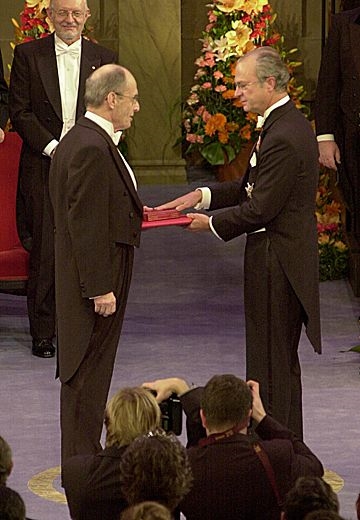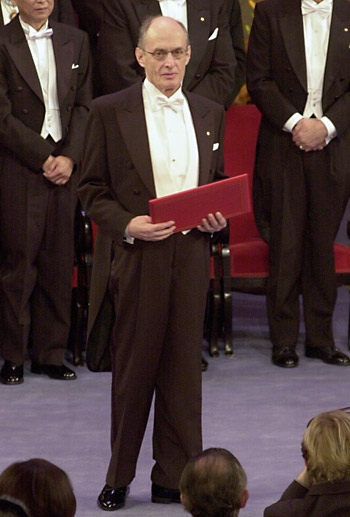 |
| Greengard conducting research (Alzheimer information) |
Paul Greengard...until a few days ago I did not know that name. Now I feel like it is unbelievable that I did not know of him. I first became aware of him through this project. I searched through the list of Nobel prize winners, until this man caught my eye. His list of accomplishments and awards was very impressive and the fact that he used his prize money to create his OWN award to recognize outstanding women scientists is extremely honorable. He worked in the field of neuroscience, which is one of the most exciting majors and the one I want to dive into. His research and the time that he has dedicated to his humanitarian work is astounding, especially because he is 83 years old. A man who is still working at the age of 83 to improve the health of future generations is a hero to me.
 |
| In lab (Operation Hernidie Scale) |
Paul Greengard is a neuroscientist. He expands that field with his own passion for knowledge and helping the world. A neuroscientist studies the brain and nervous system. He researches disorders such as Parkinson’s disease, Alzheimer’s disease, and mental disorders like depression. Becoming a neuroscientist requires four years of undergraduate school, and then graduate and / or medical school.
When Greengard first went to college (Hamilton College) he was thinking of becoming a mathematics/physics major and planned to go to graduate school to pursue theoretical physics. After spending some time with Detlev W. Bronk at the University of Pennsylvania, he discovered a fiery passion for biophysics and then moved to Johns Hopkins University. He also attended Yale, Rockefeller University, and Vanderbilt. Greengard persevered and worked a really long time to achieve the things that he loved most. This clearly shows today, as he still conducts research at Rockefeller University, where he is the professor and head of the Laboratory of Molecular and Cellular Neuroscience. He is 83!
 |
| Prize in hand (Nobel) |
Over the last thirty years, Paul Greengard’s devotion and effort in his research have paid off. He and his colleagues have demonstrated that nerve cells communicate with each other through a couple of mechanisms, and that errors in the biochemical steps that underlie this communication play a role in disorders as varied as Alzheimer’s disease and depression.
Another way that Greengard has helped society is using the money he received from the Nobel organization to create another award: The Pearl Meister Greengard Award, named after his mother. This $50,000 prize is given to an outstanding female biomedical researcher. Greengard created this award, in part, to counter the discrimination that women face in the scientific community. He hoped the award would bring more attention to the work of brilliant women scientists.
My goal is to become a neuroscientist like Paul Greengard. During high school, I plan on taking all of the biology, physics, and/or chemistry classes that I possibly can. I also plan to apply to certain colleges to see if I am allowed a possible internship (especially UCI). During high school, I will research neuroscience and try to find competitions that award scholarships to students who choose to go into this field. Hopefully, this will take me to Stanford, Northwestern, or even Johns Hopkins University. During college, I will work my hardest and no matter how long I have to work, I will try to keep a strong mentality and a happy work ethic. And as for my lifetime goals; hopefully, I can contribute as much to society as Paul Greengard. My dream is to get a Nobel Prize for something significant like finding the cure to AIDS or cancer. Thus, Greengard has become a sentinel in my life and a hero to me as I strive to reach my dreams.
Page created on 11/30/2013 5:21:57 PM
Last edited 1/9/2017 11:02:14 PM
